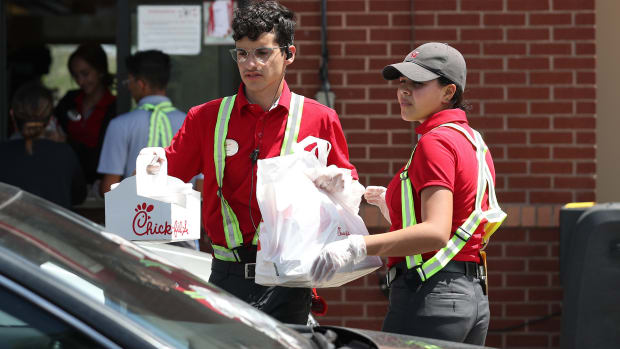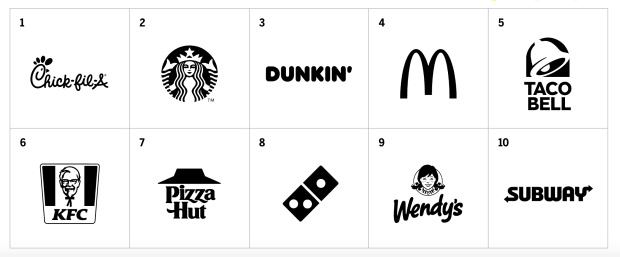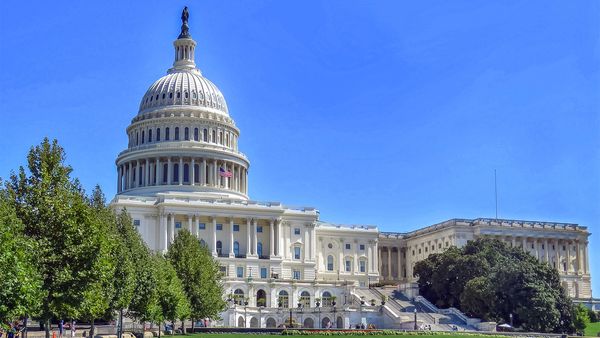It's hard to imagine being loyal to a chicken sandwich but the fact remains that chicken chain Chick-fil-A customers have the strongest connection to the brand.
Brand intimacy is the personal or emotional connection that customers have to a particular brand, according to research done by brand strategy agency MBLM., Starbucks (SBUX) and Dunkin' followed Chick-fil-A while McDonald's (MCD) slipped to fourth place from last year.
The pandemic has clearly pushed many to seek comfort through fast and comfort food. With brand intimacy rising by 8% since the beginning of the pandemic, 32% of fast-food consumers now have a positive association with a particular chain.
"Despite having to shut down at some points and weather significant supply chain challenges recently, the fast-food industry has drawn consumers closer and created stronger emotional bonds over the last year," MBLM Managing Partner Mario Natarelli said in a statement.

Joe Raedle/Getty
Why Do People Love With Chick-fil-A?
Founded out of Atlanta in 1946, Chick-fil-A is known both for fried chicken and for its conservative and Christian values — unlike almost every major fast-food chain across the world, all of its locations remain closed on Sundays.

MBLM
The chain also became the subject of a nationwide media firestorm when, in 2012, Dan T. Cathy made a number of comments against LGBTQ people and marriage. While this spurred both condemnation and support (former Arkansas Gov. Mike Huckabee declared Aug. 1 "Chick-fil-A Appreciation Day" in response), the controversy largely left the public eye in the years that come.
The chain announced that it would stop donating to same-sex-marriage-opposed organizations like the Fellowship of Christian Athletes in 2019.
Taking MBLM's top spot for brand intimacy for the second year, Chick-fil-A apparently has stronger support among women. According to the study, brand loyalty for Starbucks is higher among men while women are more likely to support Chick-fil-A.
What Does This Mean For Restaurants?
While a single study cannot explain the complicated reasons why people remain loyal to brands, the numbers clearly show that the ties people form to either food or politics are very hard to break.
Since the pandemic, customer willingness to pay for fast food products also rose by 20% while the desire to do the same for services rose by 43%.
"Brands in this industry have been able to capitalize on mobile ordering and digital drive-through lanes during the pandemic. This has created a new reality within which fast-food brands provide even more comfort and convenience to stressed consumers – a position they can effectively continue to reference as we increasingly return to 'normal life' in the year ahead."







